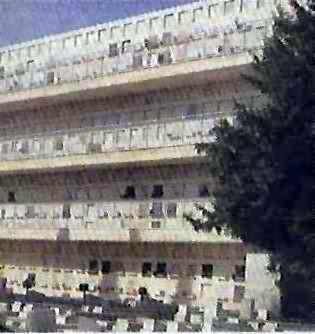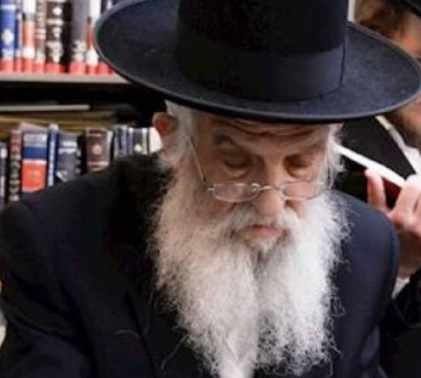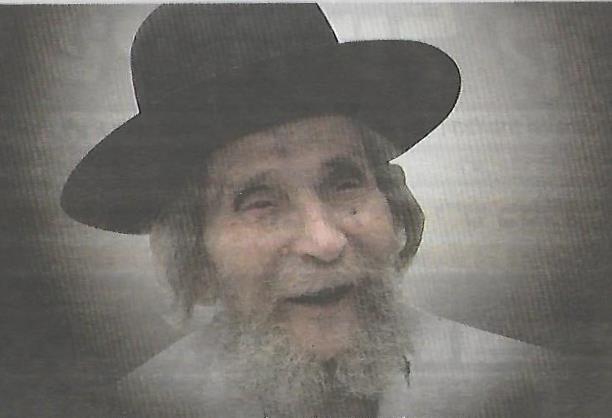  |
|
| ||||||
This Google Custom Search looks only in this website. Gedolei Yisroel Against New Burial Methods
A letter written in 5776 and signed by HaRav AYL Shteinman zt"l and ylct"a HaRav Chaim Kanievsky and HaRav Gershon Edelstein shlita, reads (in part): "We were commanded by the Torah to bury the dead. Burial of the dead, it is ruled in the Shulchan Oruch (Yoreh Dei'ah 362) is in real earth (bekarka mamash), as the posuk says, `...and you will return to the dust.' It is not good to change the form of burial that is traditional, by burying the dead in tiers and the like. We hereby declare our opinion on this that no changes should be made in the form of burial that is customary that incorporates our received traditions, which is the burial that was intended by Chazal. Whoever makes changes is at a loss. It is obligatory on anyone who can to try to ensure that no changes are made in the form of burial, and that they should allow burial in every place in keeping with the dignity of the departed. And may we soon merit to see those who slumber in the dust to awaken and rejoice. In our time..."
A person is accustomed to project himself during the month of Elul as already envisioning Rosh Hashonoh at its conclusion. From his viewpoint, there is nevertheless a space of time until that date. Such an outlook does not apply only to those who are indifferent but even to those who enter the gate of avodas Hashem and truly immerse themselves in the obligations of this month in Time. They envision Elul as preparation for the Day of Judgment.
Our rabbonim have taught us that this not quite the proper view. Rather, one should make a revolution from pole to pole. Elul, they said, does not just prepare a person for Rosh Hashonoh, but prepares the Rosh Hashonoh within that person!
In a Mussar talk during Elul, HaRav Shteinman said that every person who prays to Hashem to help him, asks for reward therefor. But what of one whose character traits are not in order, what form of reward can he expect? That his unsavory middos be fully utilized? Is this, then, regarded as a plea for a writ and sealing for a good new year?
Woe unto any success such sinners may be granted for the coming year! It is to be regarded as a misfortune! We are not addressing here people of such wicked levels, but if people do not mend their characters, and yet are given a chance to continue their wicked ways, where is the gain in their being written and sealed for a good coming year?
From Our Archives
Rabbi Nachman Bulman -- the Man Who Belonged to Everyone
by M. Samsonowitz
Part II
The first installment of this series described Rav Nachman Bulman's early years and achievements. Rabbi Bulman had become a recognized leader and speaker in the religious community in the United States. He had won the implicit trust of gedolei Torah, and he had taken several moribund or sleepy communities and turned them into Torah powerhouses. At this point, the most prestigious and attractive rabbinical positions awaited him. But instead he took a step that was highly unusual for an American rav of his stature.
Kiruv in Eretz Yisroel Beckons
Throughout his life, Rabbi Bulman had dreamed of settling in Eretz Yisroel. He had often spoken of this yearning in his speeches and classes. It was part of his spiritual inheritance from his Gerrer ancestry -- it was well known that the Imrei Emes had visited Eretz Yisroel many times and had planned to settle there. Rav Bulman used to lament that the religious community, due to its justified objections to the ideology of secular Zionism, had allowed its love for Eretz Yisroel to wane.
Recognizing the Challenges of the Modern World to Torah Life
by Mordecai Plaut
Most Torah Jews who speak English today face serious challenges that many are not even aware of. While our freedom to practice the Torah is effectively unfettered, many of our basic beliefs, attitudes and values are under ferocious assault in the world around us.
When recalling past threats it is convenient to focus on the difficulties we had in observance: the Greeks banning bris milah, for example, or outlawing Torah study in Frankfurt almost 200 years ago. By this measure, life today is pretty good. Worldwide, aside from a few threats to shechitah in Europe, Jews currently face few pressures against observing the laws of the Torah. Wherever we are, we can pretty much do as we -- and Hashem -- please. When a challenge of this sort arises, we are prepared to face it and do battle.
Background to Methylphenidate (Ritalin)
by R' Zvi Zobin
The National Institute for Clinical Excellence (NICE) is a part of the British National Health Service. Its purpose is to provide practical guidance for the NHS and patients on medicines, medical equipment, diagnostic tests and clinical and surgical procedure, and where and how they should be used.
Each of these guidelines takes around twelve months to formulate and they consult the manufacturers of the drug or device, the professional organizations and the groups which represent patients.
Methylphenidate (Ritalin and Equasym) is licensed for use in the treatment of children with ADHD and is a Schedule 2 controlled drug.
|
||||||




.jpg)


